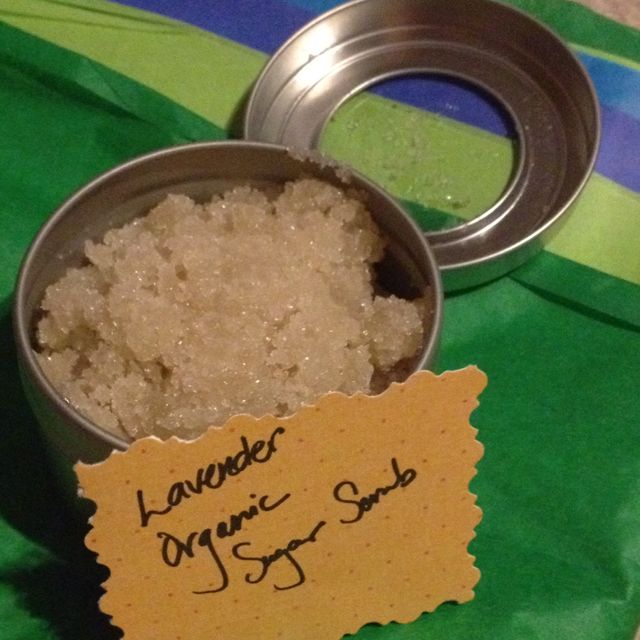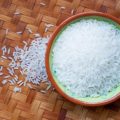Organic Cane Sugar is made from certified organic sugar cane. The organic label insures that the sugar cane was grown and processed without the use of synthetic chemicals, pesticides, or fertilizers. Organic sugar is also processed differently from conventional sugar as chemicals and man-made compounds cannot be used.
To be certified organic, sugars must be extracted from organically grown sugar cane or sugar beets plants. They must be processed, handled, and packaged according to a long list of rules. The law—the National Organic Program or NOP—was established by the U.S. Department of Agriculture.
- The use of the term “organic” in food labels is strictly regulated by the National Organic Program (NOP), which was established and is administered by the U.S. Department of Agriculture (USDA). Sweeteners labeled with the organic claim must comply not only with the USDA’s organic standards but also with the FDA’s regulations for labeling.
- Organic Sugars must be sourced from organic cane or beet that has been grown according to the NOP standards. Farmers must use practices that maintain or enhance the soil and water quality while conserving wetlands, woodlands, and wildlife. They are inspected by the USDA or a certifying agency following a long list of strict rules.
- Organic farming practices include crop rotation. Genetically modified (GM) seeds, chemical pesticides, synthetic fertilizers, and sewage sludge are not allowed. Organic does not automatically mean “pesticide-free” or “chemical-free”. A variety of sprays and powders are allowed. Still, such substances must not contribute to contamination of crops, soil, or water. To draw a comparison: organic farmers have restricted access to 27 synthetic pest control products while over 900 are registered for use in conventional farming.
- A common misconception is that organic sugar is unrefined and minimally processed. The claim “organic” in fact, relates not only to the way a crop is grown, but also how it is processed, handled, and packaged. Just like growing organic crops, organic processing is regulated by the NOP, and manufacturers of organic sugars must comply with it.
- To be claimed as an organic sweetener and display the USDA’s organic seal on the package’s label, the seller must be certified by a NOP-authorized agent or the USDA. The name of the certifying agency must be stated on the product’s label. People who sell or label a sugar “organic” when they know it does not meet USDA standards can be fined up to $17,952 for each violation.
Is Organic Cane Sugar Healthy?
Although organic is loaded with polyphenols, which are powerful phytonutrients as well as other vitamins and minerals such as calcium, potassium, magnesium, manganese, and iron; simple evaluation indicates that organic sugar is not healthier or nutritionally superior to their conventional (non-organic) counterparts. To compare, common organic sugars have 97 to 99% sucrose and table sugar has 99.95%. The remaining is mostly water in both sugars. All of them have a glycemic index around 60. Consuming too much added sugar including organic sugar can raise blood pressure and increase chronic inflammation, both of which are pathological pathways to heart disease.
Excess consumption of sugar, especially in sugary beverages, also contributes to weight gain by tricking your body into turning off its appetite-control system because liquid calories are not as satisfying as calories from solid foods. This is why it is easier for people to add more calories to their regular diet when consuming sugary beverages.
The effects of added sugar intake include higher blood pressure, inflammation, weight gain, diabetes, and fatty liver disease are all linked to an increased risk for heart attack and stroke according to Harvard Health. A study in over 430,000 people found that added sugar consumption was positively associated with an increased risk of esophageal cancer, pleural cancer and cancer of the small intestine.
How much Organic Sugar is okay?
It’s hard to say, since organic cane sugar is not a required nutrient in your diet. The Institute of Medicine, which sets Recommended Dietary Allowances, or RDAs, has not issued a formal number for sugar. However, the American Heart Association suggests that men consume no more than 150 calories (about 9 teaspoons or 36 grams) of added sugar per day.
However, the American Heart Association suggests that men consume no more than 150 calories (about 9 teaspoons or 36 grams) of added sugar per day. That is close to the amount in a 12-ounce can of soda.
A study following 8,000 people for 22 years showed that men who consumed 67 grams or more of sugar per day were 23% more likely to develop depression than men who ate less than 40 grams per day. Another study in over 69,000 women demonstrated that those with the highest intakes of added sugars had a significantly greater risk of depression, compared to those with the lowest intakes.
Other Health Risks
Aside from the risks listed above, sugar can harm your body in countless other ways.
Research shows that too much added sugar can:
- Increase kidney disease risk: Having consistently high blood sugar levels can cause damage to the delicate blood vessels in your kidneys. This can lead to an increased risk of kidney disease.
- Negatively impact dental health: Eating too much sugar can cause cavities. Bacteria in your mouth feed on sugar and release acid byproducts, which cause tooth demineralization.
- Increase the risk of developing gout: Gout is an inflammatory condition characterized by pain in the joints. Added sugars raise uric acid levels in the blood, increasing the risk of developing or worsening gout.
- Accelerate cognitive decline: High-sugar diets can lead to impaired memory and have been linked to an increased risk of dementia. SEE:Is Sugarcane Good For a Pregnant Woman?





